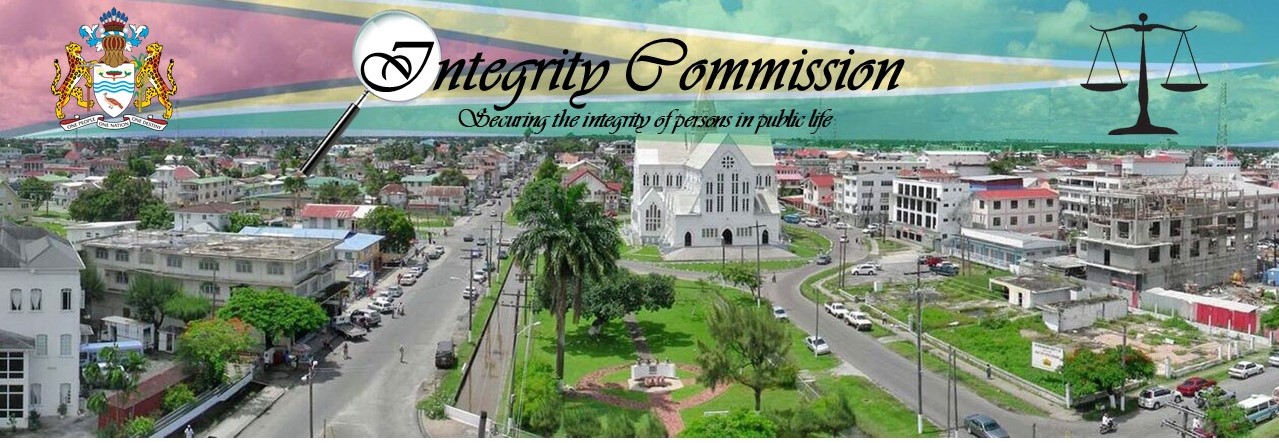Frequently asked Questions
A complaint can be made against any persons that hold any positions as listed under Schedule 1 of the Commission’s Act.
Yes, if the complaint is found frivolous or does not pertain to a matter the Commission is empowered to deal with.
The Integrity Commission is a broad- based public sector anti-corruption body that functions independently with a mandate to foster public trust and confidence; promote integrity and accountability; prevent, investigate and expose corruption; support development and implementation of an anti-corruption plan; and improve coordination and efficiency so as to enhance standards of ethical conduct for parliamentarians, public officials and other individuals specified by law.
The Integrity Commission in Guyana establishes the assurance of the integrity of Public Officials in the performance of their public functions.
It is a mechanism available to a government to improve good governance, transparency and accountability by Persons in Public Life.
Schedule 1 of the Integrity Commission Act provides the offices and/or designations of Persons in Public Life who are required to declare their Assets and Liabilities to the Commission (see attached Schedule 1 of the Integrity Commission’s Act).
Section 45 of the Integrity Commission Act stipulates other designations outside of Schedule 1, which may be required to submit a declaration.
Part III of the Integrity Commission Act, No, 20 of 1997 stipulates that all Persons in Public Life must disclose their finances to the Integrity Commission. Disclosure in this regard entails their Assets and Liabilities in a prescribed form (Form 1). The duty to disclose finances includes the Declarant, Spouse, Children and any person connected to him/her in terms of property and/or financial terms such as holdings.
The main aims for Assets Declarations are:
- To increase transparency and the trust in Public Office.
- To help heads of public institutions prevent conflicts of interest among employees and to resolve situations which may arise in terms of corruption and dishonesty. Thus, the endeavor to declare financial assets promotes integrity within their institutions.
- To build a climate of integrity in the public service.
- To dissuade Public Officers from misconduct. “Misconduct” refers to illegal enrichment and other illegal activity.
- To bolster public confidence in the integrity of government by sending a signal that public officials’ finances are subject to scrutiny.
- To protect public officials against false accusations.
A declarant has to file declaration containing his/her assets and liabilities on or before June, 30th of every year and also the particulars of Income for the period of twelve months prior to June 30th.
The Commission will write to the declarants, informing them that they are outstanding for which years along with a copy of a blank declaration form. The Commission will also inform them in the said letter that they are liable to be prosecuted for the failure to file, and the fact of your failure to file can be published in the Official Gazette or a daily newspaper.
A declarant ceases to be a declarant once he/she is deceased or no longer employed as a public officer.
No, but if you have outstanding declarations forms, you will have to submit those.

